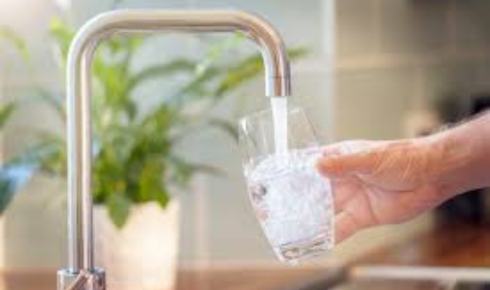If you’ve ever noticed your freshly washed dishes looking cloudy, your shower door streaked with chalky spots, or your skin feeling oddly dry after a bath — you’ve probably met one of Texas’ most persistent house guests: hard water. It doesn’t get the headlines that droughts or power grids do, but it’s a constant, costly nuisance woven into daily life for millions of Texans.
The Science Behind the Struggle
Before diving into the effects, let’s unpack what hard water problems in texas actually is. It’s simply water that contains high levels of dissolved minerals — mostly calcium and magnesium. These minerals come from limestone and chalk deposits underground, which Texas happens to have in abundance. When water seeps through those formations, it picks up minerals along the way. By the time it reaches your faucet, it’s more “rocky” than refreshing.
In most areas across the state, especially Central and North Texas, the mineral content can be shockingly high. For instance, cities like Austin, Dallas, and San Antonio often report readings between 120 to 300 parts per million — putting them well within the “hard” or even “very hard” range. That means almost every shower, laundry load, and glass of water carries a bit of extra calcium and magnesium you didn’t order.
How texas hard water Changes Daily Life
Hard water doesn’t pose a health risk, but it’s a lifestyle disruptor. Let’s start in the bathroom — that’s where it first announces its presence. Soap and shampoo don’t lather easily, leaving you with a slimy feeling that never quite washes off. Hair tends to look dull, skin feels dry, and you might find yourself using more products than usual to compensate.
Move into the kitchen, and the impact continues. Dishwashers struggle, glasses come out spotted, and over time, mineral buildup forms in appliances and pipes. Coffee makers and kettles clog faster, faucets start to scale, and even the water heater efficiency drops because of sediment buildup. What begins as a cosmetic annoyance quietly turns into an expensive maintenance problem.
The True Cost of hard water problems in texas
Here’s the thing about mineral buildup — it’s slow, sneaky, and stubborn. The film that forms on your shower head doesn’t seem like much, but multiply that across pipes, heaters, and fixtures, and you’ve got a system under stress. A water heater clogged with calcium can lose up to 30% of its efficiency, forcing it to use more energy to do the same job. That means higher bills every month and shorter appliance life overall.
Homeowners across Texas spend hundreds each year replacing prematurely worn-out plumbing parts, appliances, and fixtures. Detergent use goes up too — because soaps don’t perform as well in hard water. It’s not unusual for a family to use twice the normal amount of laundry detergent just to get the same level of cleanliness. And for anyone who’s invested in modern water-using appliances, that’s a lot of extra cost for something invisible.
Why It’s Worse in Texas
Hard water isn’t unique to Texas — but the scale of it is. The state’s geology practically guarantees it. The Edwards Plateau, a massive limestone formation stretching across central Texas, is one of the biggest culprits. Municipalities treat the water to make it safe, but they don’t remove hardness minerals because doing so is expensive and unnecessary for health. That means homeowners are left to handle the consequences themselves.
Combine that with Texas’ climate — long dry spells followed by bursts of rain that push minerals through the soil — and you’ve got a perfect setup for stubborn hardness. Even if you move cities, odds are you’ll still face it.
How hard water in texas homes Impacts Comfort
Let’s talk comfort for a second. One of the less-discussed effects of hard water is how it changes the way your home feels. Clothes washed in hard water turn stiff and rough over time. Towels lose that fresh fluffiness. Hard water in texas homes spots on glass and tile become a daily battle. And the constant cleaning can be exhausting — it’s not that you’re messy; it’s that your water works against you.
Many Texans also notice their skin reacting differently when they move from soft-water regions. Hard water can leave a residue that irritates sensitive skin or worsens conditions like eczema. That’s why so many homes end up investing in softeners not for luxury, but for relief.
Finding a Solution That Actually Works
The good news? Hard water can be tamed. A properly sized water softener removes calcium and magnesium ions, replacing them with sodium or potassium through a process called ion exchange. The result is water that feels smoother, tastes better, and treats your plumbing with kindness.
Salt-free systems and conditioners also exist, though they don’t technically “soften” water — they just reduce scale buildup. These can be good options for those looking for lower maintenance or sodium-free alternatives.
For rural homes on well water, filtration often goes hand in hand with softening. Since wells can bring in additional minerals and contaminants, combining systems ensures both clarity and comfort.
Why Prevention Beats Reaction
There’s an old saying: “An ounce of prevention is worth a pound of cure.” When it comes to hard water, that’s an understatement. Installing a softener before damage begins can save thousands in repair and replacement costs later. Even small benefits — like cleaner dishes, softer laundry, or reduced soap use — add up over time.
For Texas homeowners, it’s not just about convenience. It’s about protecting what they’ve invested in — from expensive kitchen appliances to the plumbing that keeps everything running. And honestly, it’s about enjoying water that actually feels clean again.
Closing Thoughts
If you’ve lived in Texas long enough, you’ve probably accepted the tap water quirks as just part of the deal. But it doesn’t have to be. Addressing hard water isn’t just a home upgrade — it’s a quality-of-life improvement.
The next time you notice cloudy glasses or itchy skin after a shower, remember: it’s not you, it’s the water. And with the right system, you can finally show texas hard water who’s boss.

